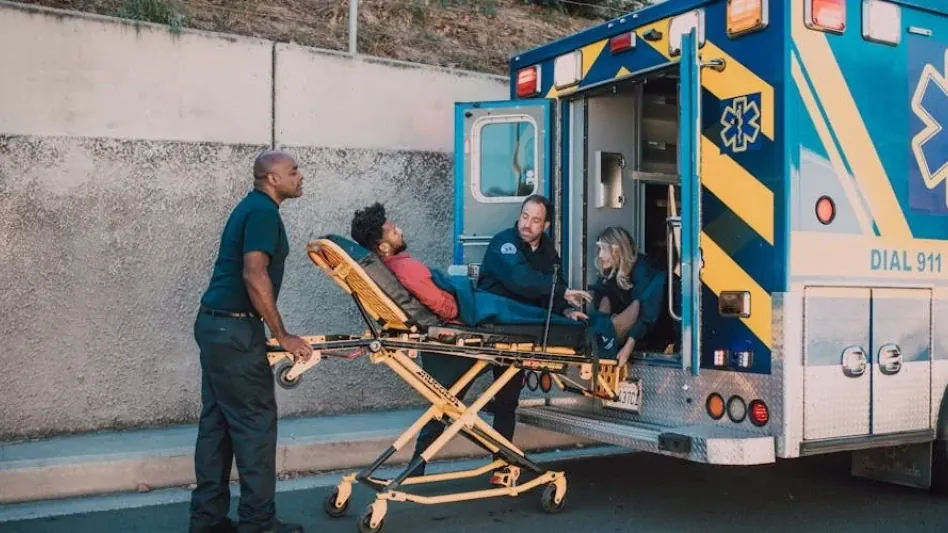In the wake of the devastating COVID-19 pandemic that claimed over 37,000 lives, New Jersey is rigorously enhancing its capacity to respond to future public health emergencies. Building on the hard-earned lessons from the pandemic, the state is committed to overhauling its strategies, policies, and preparedness mechanisms to protect its citizens more effectively against ongoing and future health threats. As the state moves forward, a comprehensive approach combining legislative initiatives, community involvement, and sustainable funding is essential to rebuild public health infrastructure and resilience.
Task Force and Legislative Support
A task force composed of state government leaders is at the forefront of these efforts, convening monthly to identify and address New Jersey’s vulnerabilities and strengths. This group has focused on countering persistent threats like influenza and Respiratory Syncytial Virus (RSV), which have recently driven more emergency room visits than COVID-19. The Legislature supports these measures by advancing proposals aimed at bolstering the state’s emergency response infrastructure. For instance, one notable bill that received backing from the Senate health committee in early December would empower the New Jersey Department of Health to stockpile essential medical supplies and therapeutics in anticipation of future crises.
Reflecting on the state’s stumbles during the pandemic, a comprehensive independent assessment released in March underscored New Jersey’s initial lack of preparedness. The state’s cumulative COVID-19 statistics reveal the stark toll: over 2.7 million infections and around 191,000 hospitalizations since the virus’s outbreak in April 2020. Legislative support is crucial as these officials aim to correct past oversights by enhancing existing policies and establishing new frameworks dedicated to better preparedness. These steps, while significantly necessary, appear to be the collective result of concerted efforts by state professionals to secure a healthier, more robust emergency response system moving forward.
Addressing Systemic Inequities
A critical takeaway from the review is the imperative for profound reforms targeting prevention and equitable health response, as championed by the COVID-19 Pandemic Task Force on Racial and Health Disparities. This task force, led by Dr. Tanya Pagán Raggio-Ashley, has recommended a plethora of measures to rectify systemic inequities — particularly by recognizing racism as a public health crisis and fostering inclusivity in disaster preparedness and response policies. Ensuring that the response to any health emergency is equitable across all demographics is a crucial component that cannot be overlooked in these new plans.
Among the task force’s extensive recommendations is the creation of a council dedicated to systemic racism, elevating the role of health equity officers in major hospitals, and enhancing the involvement of community-based organizations in emergency response efforts. These measures aim to address the social determinants of health, such as poverty and education disparities, which exacerbate health vulnerabilities. Summing up her findings, Dr. Raggio-Ashley emphasized the necessity for a paradigm shift towards prevention and a holistic strategy that prioritizes the most vulnerable populations in New Jersey. By implementing these extensive reforms, New Jersey intends to foster a more inclusive and equitable health framework to effectively manage future crises.
Legislative Initiatives and Funding Concerns
Efforts are ongoing to draft legislation for the New Jersey Department of Health to maintain reserves of critical medical supplies. Nevertheless, local health officials have voiced concerns about the sustainability of their funding. As it stands, much of their operations are financed through local property taxes, a funding source they deem inadequate for the scale and scope of their responsibilities. The challenge of ensuring consistent and adequate funding remains a major hurdle in actualizing these ambitious plans.
Additional legislative initiatives include proposals to restore financial support to local public health offices. Despite significant budget increments for various state programs, the most recent fiscal budget did not allocate additional resources for local health departments, whose funding was significantly depleted following the expiration of federal emergency support. Senator Vin Gopal has been a vocal advocate, underscoring the necessity for persistent lobbying efforts to revive the Public Health Priority Fund, which lapsed during Governor Chris Christie’s tenure, and secure ongoing financial investment in public health infrastructures. The sustainability of these initiatives heavily relies on harnessing the support of state and local financial institutions to back these proposals.
Combating Misinformation
New legislative proposals advanced by state lawmakers on several fronts reflect a concerted approach to pandemic preparedness. These initiatives include measures to further strengthen local public health systems, ensure coherent emergency response efforts, and address specific concerns like the criminalization of healthcare misinformation. Legislators, led by Assembly Health Committee Chair Herb Conaway Jr., have pushed for making it a punishable offense for healthcare professionals to knowingly disseminate false information about medical treatments and vaccines. Such proposals aim to curb the spread of misinformation, ensuring public health efforts are not undermined by falsehoods propagated by clinicians.
Herb Conaway Jr., a physician himself, emphasized the ethical responsibility healthcare providers have in communicating accurate information, stressing that misinformation complicates public health officials’ duties. Broad support for these measures indicated an acknowledgment of the critical need to monitor and manage professional conduct to maintain the integrity and efficacy of emergency health communications. Ensuring that healthcare professionals base their patient care and public communication on accurate and validated data will foster trust and facilitate more robust public health strategies in the long run.
Independent Review and Recommendations
An independent report reviewing Governor Phil Murphy’s administration’s COVID-19 response presents a sobering evaluation of the state’s preparedness. While New Jersey had strategic frameworks for influenza and other infectious diseases, such as #N1, West Nile, and Ebola, these protocols fell short when confronted with the unprecedented scale of the COVID-19 pandemic. This lack of comprehensive preparedness underlines the need for more robust planning and consistent updating of health emergency protocols.
The state’s decision to forgo participation in a 2019 federal exercise simulating a pandemic scenario involving a highly contagious virus might have further compromised their preparedness. Consequently, gaps in knowledge, critical supplies, and awareness were significant barriers to effective response and mitigation. Lawyer Paul Zoubek, who spearheaded the independent review, concluded that the lack of preparedness resulted in severe and avoidable outcomes. His report serves both as a memorial to those lost to COVID-19 and a call to action for strengthening public health infrastructure, endorsing a culture of continuous preparedness, and fostering collaborative emergency response planning.
Financial Investment in Public Health
In response to the devastating COVID-19 pandemic, which claimed the lives of more than 37,000 people in New Jersey, the state is actively working to improve its ability to handle future public health crises. The harsh lessons learned from the pandemic have motivated New Jersey to commit to revamping its strategies, policies, and preparedness measures to provide better protection for its residents against current and future health threats. As part of this commitment, the state recognizes the need for a comprehensive approach that integrates legislative action, community engagement, and sustainable funding. Such an approach is crucial for rebuilding and strengthening the public health infrastructure and enhancing resilience to future emergencies.
New Jersey’s efforts include reviewing and updating existing policies to ensure they are effective and adaptable to emerging health risks. Additionally, the state is focused on fostering greater collaboration between government agencies, healthcare providers, and community organizations to create a unified response to health emergencies. This collaborative effort also extends to improving communication with the public, ensuring that residents are well-informed and prepared for any future health crises. By prioritizing these initiatives, New Jersey aims to create a robust public health system capable of withstanding and swiftly responding to any future health challenges, ultimately safeguarding the well-being of its population.









